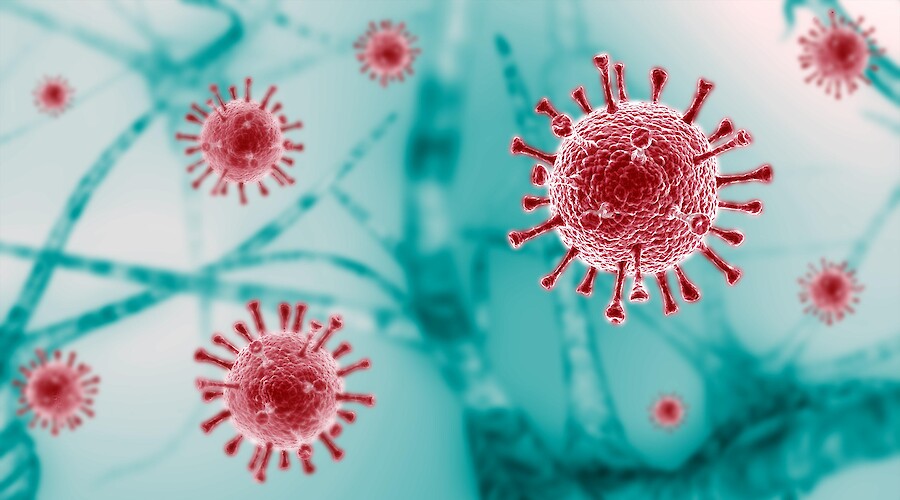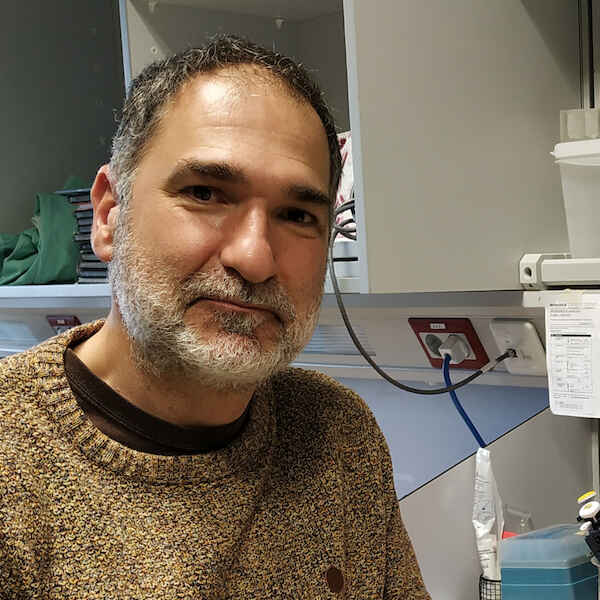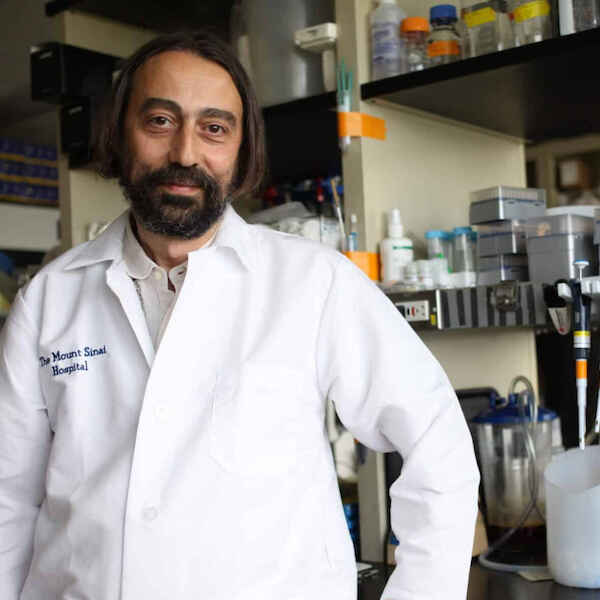ECUSA DC Seminar Series II. Emerging Viral Diseases: Transmission, Challenges and Vaccines

This Second Edition Seminar series by ECUSA focuses on the emerging viral pathogens and the challenges and threats they pose, along with how vaccines play a fundamental role as a solution to these threats.
This Second Edition Seminar series by ECUSA Washington DC will address the challenges and threats that emerging viral pathogens currently pose for the human species and how vaccines are the answer to these threats.
This seminar is intended for a non-specialized audience, assuming that not everybody will have a strong background in STEM. Attendees will have the unique opportunity to engage with these internationally renowned experts in the Q&A sessions.
Bruno Hernáez de la Plaza, PhD
- 6:30 pm–6:55 pm: Talk.
- 6:55 pm–7:15 pm: Q&A.

Dr. Hernáez de la Plaza obtained his PhD in 2004 at Instituto Nacional de Investigación y Tecnología Agraria y Alimentaria (INIA). During this period and the first postdoc, his research was focused on the African swine fever virus (ASFV) exploitation of diverse cellular pathways after infection including virus transport or apoptosis. As an invited researcher at the Pirbright Institute for animal health in the UK he developed new strategies to monitor ASFV infection in vivo using fluorescent viruses. At that time, viral entry became an attractive step of infection to target antiviral approaches. Hernáez de la Plaza explored the endocytosis mechanism used by ASFV to enter the host cell. Then, he moved to Centro de Biologia Molecular Severo Ochoa (CBMSO), to further dissect the ASFV entry in the cell using a combination of inducible recombinant viruses and electron microscopy approaches.
In 2013 Hernáez de la Plaza joined Dr. Alcami’s lab at CBMSO to lead a novel project to analyze in vivo the modulation of host response by poxviruses using the mousepox model of infection. During that period he made relevant contributions to the field of poxvirus evasion of the host response that were published in the most important journals of the field: Science, Nature Communications, Science Advances, etc.
More recently, Hernáez de la Plaza obtained a permanent position as CSIC tenured researcher and was included in the CSIC group of experts for Monkeypox. He was awarded with a competitive research project as principal investigator to study the relevance of monkeypox virus evasion mechanisms of the host response. In summary, Hernáez de la Plaza has always been interested in diverse aspects of large DNA viruses biology and the complex strategies they use to exploit cellular pathways and modulate the host innate immune response.
Adolfo García-Sastre, PhD
- 7-15 pm–7:40 pm: Talk.
- 7:40 pm–8 pm: Q&A.
 Dr. García-Sastre is a Professor in the Department of Microbiology and Director of the Global Health and Emerging Pathogens Institute of Icahn School of Medicine at Mount Sinai in New York, as well as the director of the Center for Research on Influenza Pathogenesis (CRIP), one of the five NIAID funded Centers of Excellence for Influenza Research and Surveillance.
Dr. García-Sastre is a Professor in the Department of Microbiology and Director of the Global Health and Emerging Pathogens Institute of Icahn School of Medicine at Mount Sinai in New York, as well as the director of the Center for Research on Influenza Pathogenesis (CRIP), one of the five NIAID funded Centers of Excellence for Influenza Research and Surveillance.
He was among the first members of the Vaccine Study Section and member of the Virology B Study Section of NIH. In addition, he has served for 5 years as editor of Journal of Experimental Medicine, is editor of PLoS Pathogens, Journal of Virology and Virus Research, and member of the editorial board of Virology, Vaccine, NPJ Vaccines and Influenza and Other Respiratory Diseases. He is a member of the scientific advisory board of Keystone Symposia, and co-organized the international course on Viral Vectors (2001, Heidelberg, Germany), the first Research Conference on Orthomyxoviruses (2001, Teixel, The Netherlands), the 7th International Society for Vaccines meeting (2013) and the Keystone Meetings on Respiratory Virus Pathogenesis (2014) and Interferons (2017).
For the past 25 years, his research interest has been focused on the molecular biology of influenza viruses and several other negative strand RNA viruses. During his post-doctoral training in the early 1990s, he developed novel strategies for expression of foreign antigens by a negative strand RNA virus, influenza virus. He has made major contributions to the influenza virus field, and his studies also provided the first description and molecular analysis of a viral-encoded IFN antagonist among negative strand RNA viruses. These studies led to the generation of attenuated influenza viruses containing defined mutations in their IFN antagonist protein that might prove to be optimal live vaccines against influenza.
His research has resulted in more than 480 scientific publications and reviews, and his publication in Science on the reconstruction and characterization of the pandemic influenza virus of 1918 has been awarded with the distinction of the paper of the year 2005 by Lancet. That same year, he became a Fellow of the American Academy of Microbiology, and in 2009, he received the Beijerink Professorship from the National Academy of Sciences of the Netherlands. In 2011, was elected President of the International Society for Vaccines, for 2014 and 2015. In 2017, was elected a fellow of the Royal Academy of Pharmacy in Spain.